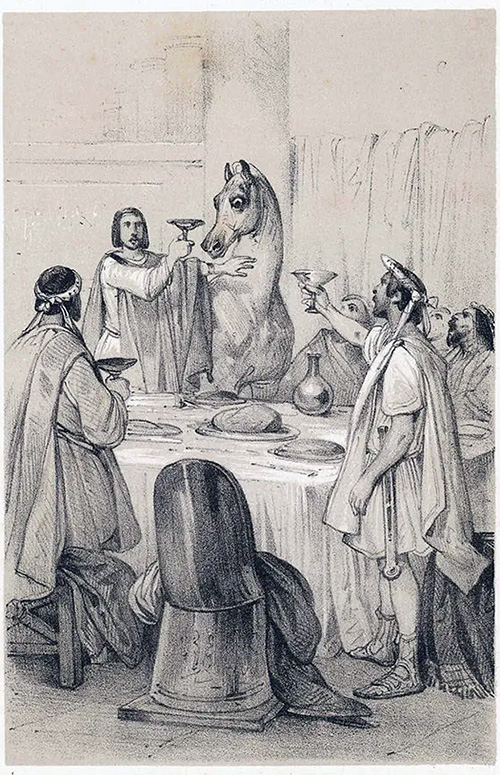Many authors have written about the three biggest influences on the personality of Donald J. Trump: (1) his father, Frederick (Fred); (2) shifty attorney Roy Cohn; and (3) famous minister Norman Vincent Peale.
All of these men spent their lives fighting against what most other people would call “reality.”
Besides teaching Donald that financial worth was identical to self-worth, his father taught him that “real men” should be “killers,” cruel for the sake of being cruel.
After failing to turn his firstborn son Fred Jr. into a “killer,” he settled on his second-born son, Donald.
In Mary L. Trump’s book about her family (Too Much and Never Enough), the daughter of Fred Jr. describes how her grandfather delighted in humiliating others, and enjoyed watching Donald do the same.
As Fred Trump built his company, he continued in his delusion that he was the financial genius in the Trump family, not his mother Elizabeth Christ Trump (who had founded E. Trump & Son).
Mary Trump describes how her grandfather refused to face reality as he descended into old age.
When facing clear proof that he had failed in the Steeplechase Park project, he blamed his son Fred Jr., instead of himself.
When facing clear evidence that Donald had failed in Atlantic City, Fred double-downed, and blamed everyone but Donald: the banks, the economy, and the Casino industry itself.
Eventually, Fred attempted to save Donald, by purchasing a million dollars in chips, and not cashing them in.
Fred Trump was also unskilled in helping his family deal with the realities of illness and addiction.
He told Fred Jr. to fight alcohol addiction with the platitude: “Just make up your mind, Fred.”
He told his sick wife: “Everything’s great. Right, Toots? You just have to think positive.”
No wonder that Donald Trump ignored the reality of the COVID-19 crisis, and ran a federal government that caused nearly 250,000 unnecessary American deaths!
A much “showier” person than Fred Trump, Roy Cohn also taught Trump to be “a killer,” but to be more “public” about it.
As a young man, Cohn played a key role in Senator Joe McCarthy’s anti-communist hearings of the early 1950’s.
He parlayed that into a 30-year career as a private attorney in New York City.
Cohn was known for having no moral compass.
His clients included prosperous, but unethical people, from Mafia figures (like Tony Salerno and John Gotti), to businessmen (like Fred Trump and Richard Dupont).
Cohn was finally disbarred in 1986 for unethical and unprofessional conduct, including misappropriation of client funds (the 1975 Rosenstiel case).
He finally died of HIV/AIDS in 1986, leaving few financial assets.
Roy Cohn was as bad at reality as Fred Trump.
Despite being gay, Cohn never publicly admitted this reality.
One would never have guessed his homosexual identity, based on his treatment of other gay men and women.
Cohn was instrumental in President Eisenhower’s executive order to ban homosexuals from employment in the Federal Government.
Many Sundays, Fred and Donald Trump attended church services at the Marble Collegiate Church, on Fifth Avenue, in Manhattan.
This was the church where Donald married his first wife.
The minister, Norman Vincent Peale, had written the extremely popular book The Power of Positive Thinking (1952).
It was at this church that Fred and Donald listened to sermons that didn’t preach much about the nature of God.
Instead, the Trumps were told that anything was possible if they were confident enough, that God values worldly wealth, and to evade what made them feel either sad or inadequate.
Many Protestant theologians found Peale’s beliefs to be dangerous, heretical, and even anti-Christian.
To Episcopalian Bishop John McGill Krumm, it was apparent that Peale was using hypnotic techniques.
Methodist Bishop Garfield Bromley Oxnam complained that Peale was turning Christianity into “a cult of success.”
Certain ministers, like Billy Graham and Joel Osteen, have found Peale’s belief system much more appealing.
While most Catholic priests, and Protestant ministers, preach humility before God, Peale taught his flock unreasoning confidence, and to ignore reality.
The influence of his father, his lawyer, and his minister, explains a lot about Donald Trump.
Trump believes that if he lies often enough, his followers will believe anything he says.
He believes that if he’s able to win a second term, all the historians will fall in line, and—there he’ll be—a face on Mount Rushmore.
Trump refused to listen to the White House lawyers who begged him to do what every losing political leader has done before, graciously admit that he’d lost the 2020 election.
Instead, he sought out shysters—as his father had done—to think up schemes to keep him in power.
He was known to exclaim: “Where’s my Roy Cohn?”
To Trump, there is no real meaning to the word “truth,”* and he doesn’t seem to have clear viewpoints on many subjects besides tariffs, and ignoring climate change.
Words are only tools to help this salesman/conman obtain more money, and stay out of jail.
* Counselor to former President Trump, Kellyanne Conway, understands her former boss very well. Trump exists in a world of (as she phrases it) “alternative truths.”










No comments:
Post a Comment